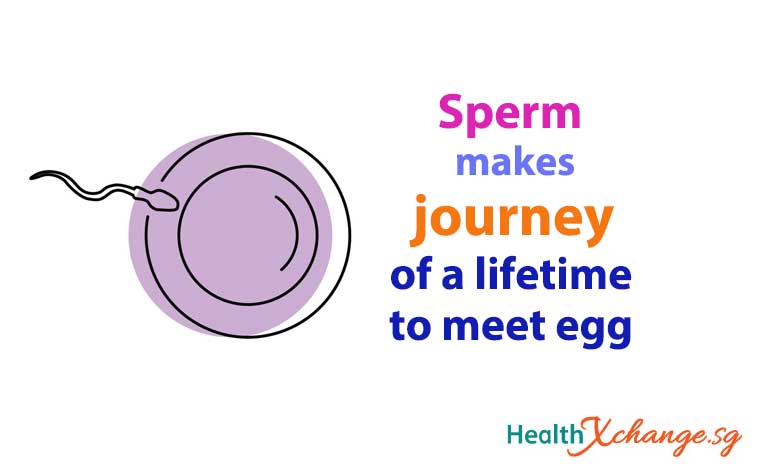
Pregnancy week 3: From as many as 500 million sperms that are released during intercourse, only one sperm will fuse with your egg.
For mom
At pregnancy week 3, ovulation has taken place, your egg has been released from your ovary and is sitting at the ovarian end of the fallopian tube, ready to be fertilised.
Sperm overcomes many obstacles to meet egg
During intercourse, as much as 500 million sperms are released into the cervix. From there, the journey begins. The sperms have to travel a distance of about 15 to 18 cm from the vagina, through the cervix and to the ovarian end of the fallopian tubes. This journey can take anytime between half an hour to several days. This is because they encounter many obstacles along the way and have to battle cervical mucus which can often be thick and difficult to pass though. However, at the time of ovulation, or day 14 of your cycle, cervical mucus is usually runny and transparent and is therefore the most favourable for the sperm.
Along the way, many sperms will tire; some will encounter a battle with your immune system in the form of white cells (especially if a mild infection is present) and die. Only several hundred make it to the egg.
Once there, the sperms work together to burrow through the many protective layers surrounding your egg. They release enzymes that help break these barriers down. This is not an easy process, and more sperms will perish. After several hours, one sperm eventually breaks through. Almost instantly, a chemical reaction takes place, and the outer surface of the egg changes such that only the winning sperm is inside. This protective mechanism causes the rest of the sperm to be trapped outside, ensuring that only one sperm can fuse with your egg.
The 23 chromosomes each carried by the sperm and egg now combine to total 46, a new life begins. It's now been a good 20 hours since coitus, and fertilisation has finally taken place.
For baby
Although fertilisation may have taken place, your "baby" is technically only a single cell big and is called a zygote. It will continue to divide and grow and will be generally known as an embryo until the 10th week of pregnancy.
This week the embryo will remain in your fallopian tubes for 3-4 days, multiplying. At the same time, it will move along your tubes in the direction of your uterus. This migration takes 3-7 days.
Boy or girl? Baby’s sex depends on winning sperm’s chromosome
The gender of your child will be determined by the combination of both yours and your partner's genetic blueprint. Specifically, it depends on whether the "winning" sperm carried an X or Y chromosome. Mother's always give an X. Therefore you would require an XX to make a girl and XY for a boy.
Ref: L20
Click the link for the complete listing of articles for Pregnancy Week 1 - Week 40.
Contributed by

















